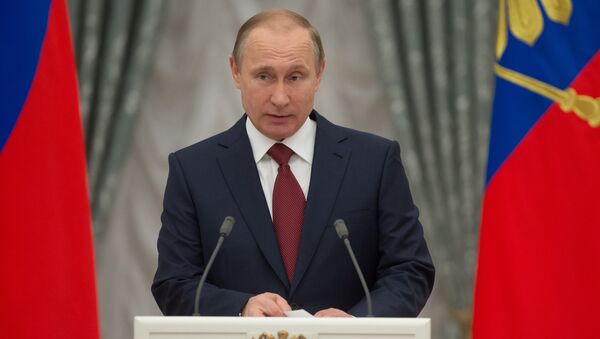On the eve of the Democratic Party Convention in Philadelphia, presidential candidate Hillary Clinton found herself under siege by brewing revelations from a WikiLeaks dump of DNC files exposing her campaign’s complicity in a complex scheme, along with top Democratic Party operatives and members of the mainstream media, to tilt the scales in the election against Bernie Sanders.
The release of 20,000 emails through WikiLeaks appeared set to dampen the mood for the Clinton coronation as the DNC was forced to quickly dispatch with beleaguered chairwoman Debbie Wasserman Schultz who facilitated a culture of corruption with the Party before hours later being brazenly scooped up by Hillary’s campaign perhaps in recognition for her ‘service’ in helping elect Clinton.
But then the narrative flipped on its head as Hillary’s campaign manager Robby Mook floated an outlandish assertion straight out of a Tom Clancy spy novel that "it was the Russians" who were behind the email leak and it is a conspiracy by Putin to help elect Donald Trump. That crazy conspiracy theory quickly caught fire with the media devouring the line and spreading it far and wide.
The DNC’s security firm, the same entity that failed to prevent the hack, CrowdStrike quickly rushed in to point the finger at Russia’s Military Intelligence Service, the GRU. The firm claims that it found two types of Advanced Persistent Threat (APT) malware inside the DNC’s servers intended to remain undetected for long periods of time, slowly spread inside the servers, and secretly send back information to the culprits who had planted the virus.
However, analysts with the Israeli intelligence news agency DebkaFile found more holes in these assertions than a five-dollar block of Swiss cheese and came to the conclusion that the “hacking was almost certainly not carried out by GRU’s cyber warfare branch.
First of all, the analysts blast the notion that a branch of Russian intelligence would leave obvious signatures, such as the terms "Fancy Bear" and "Cozy Bear" as claimed by CrowdStrike to be found by investigators unless their goal was to undermine Trump’s candidacy.
They also raise the question of why Russia, who is focused on securing strategic and economic data, wasting scarce resources to determine the DNC’s opinion of Bernie Sanders’ religious orthodoxy.
Then there is the fact that blaming the attack on Russia, a perennial punching bag for politicians and media whenever something goes wrong whether or not the claims are rooted in fact, was so brazenly quaint and also served as a reminder that the most famous leaker of US classified documents, Edward Snowden, continues to live free from prosecution in Russia.
Although these circumstantial points have merit, they hardly disprove the allegation that has been lodged against Russia that they were behind the hack in order to manipulate the US election. Instead, they simply seem to show that it is highly unlikely that Moscow is the culprit.
But then the analysts pointed to one incontrovertible fact that completely devastates the bold-faced allegation showing it to be predicated not on evidence but merely fabricated from whole cloth.
The security firm CrowdStrike claimed that they determined the source of the hack in a matter of two hours, but "getting to the bottom of an APT (Advanced Persistent Threat) calls for extra-powerful computers, working in conjunction with the internet service provider (ISP), and consuming weeks, if not months of analysis."
In a nutshell, CrowdStrike lied. The nature of the hack rendered it technologically impossible that they could have determined the source in time to seize on the window of political opportunity.
As Donald Trump asserted at a press conference, the hacker was probably just "some guy with a 200 IQ who can’t get out of bed in the morning" – somebody who likes to call himself Guccifer 2.0 maybe?






